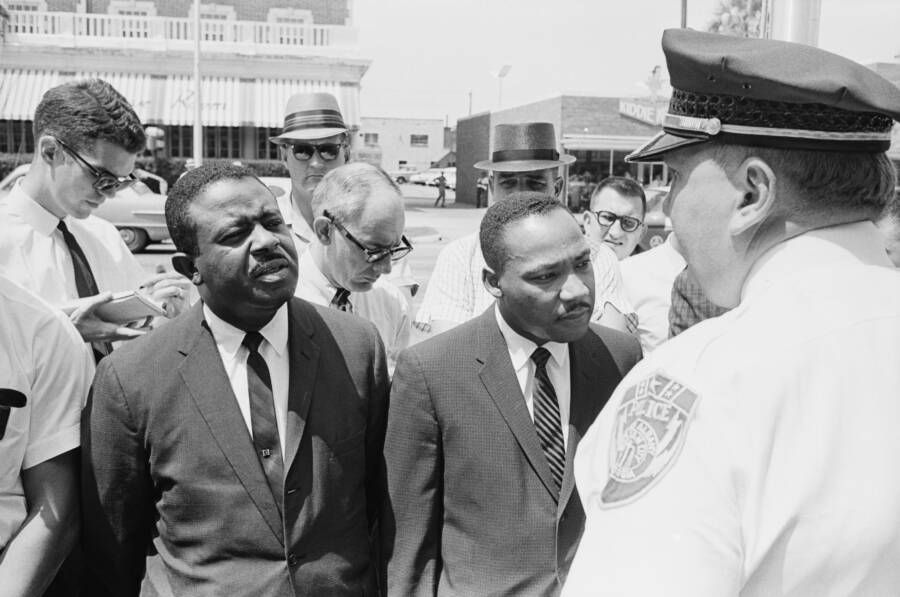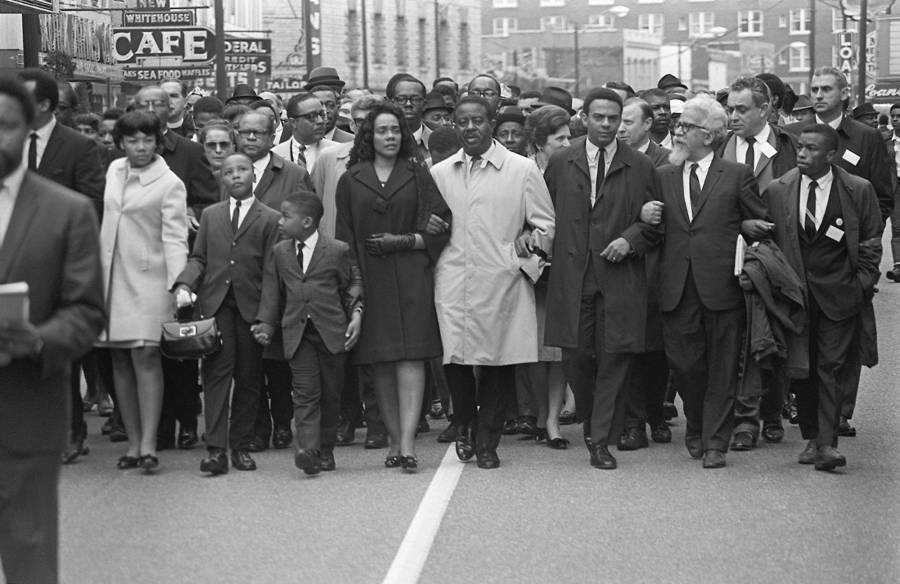Ralph Abernathy: Martin Luther King Jr.’s Right Hand Man

Bettmann/Getty ImagesCivil rights leaders Ralph Abernathy and Martin Luther King Jr. standing side by side during an arrest in 1962.
To some, Ralph Abernathy was Martin Luther King Jr.’s twin. The two Baptist ministers worked closely together to launch the Montgomery bus boycott, establish SCLC, and guide the civil rights movement. They were even arrested together 17 times.
They first met in Montgomery, when Abernathy saw King give a sermon. “Envious” of King’s “learning and confidence,” Abernathy immediately identified him as a “man with a special gift from God” and became King’s friend.
But whereas King operated at the forefront of the movement, Abernathy worked behind the scenes. Often, after King gave a soaring speech, Abernathy followed him by saying, “Let me tell you what that means for tomorrow morning.”
When King traveled to Memphis, Tennessee, in April 1968 to support a sanitation worker’s strike, Abernathy went with him. They even shared a room. Abernathy was reportedly standing in their room looking for cologne when an assassin shot King on the balcony on April 4.

AFP/Getty ImagesRobert Abernathy and Coretta Scott King led the march that MLK had planned to lead in support of Memphis sanitation workers.
“Get back, my friend,” Abernathy urged King as paramedics took him away. “Don’t leave us now.”
In the wake of King’s death, Abernathy assumed leadership of the SCLC. He immediately turned his attention to King’s Poor People’s Campaign and set up a massive protest in Washington D.C.
But SCLC faltered in the subsequent years. Abernathy resigned in 1977 and ran unsuccessfully for Congress. He later released a book about his relationship with King that many critiqued for its account of King’s extramarital affairs.
Though Abernathy burned bridges with the book, civil rights leaders recognized him as a crucial member of their movement after his death in 1990.
“They understood each other better than anyone understood either of them,” Jesse Jackson said of King and Abernathy. “Often, when a twin dies, the other suffers from protracted loneliness. Ralph said on many occasions he wished he also had died that day.”





